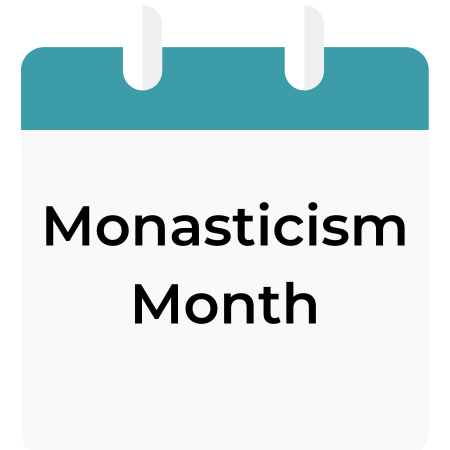The Shepherd of the Desert
On the 4th day of the Coptic month of Nasie, the Church commemorates Abba Poemen—a towering figure of desert monasticism. His name, which means “the shepherd” in Greek, is fitting. Also spelled Pimen, Poimen, or Baymoun, he truly lived as a spiritual shepherd, guiding countless souls with wisdom, humility, and compassion.
A Legacy of Wisdom and Healing
Abba Poemen’s sayings make up one-seventh of the Apophthegmata Patrum, or Sayings of the Desert Fathers. These teachings are rich with insight, offering spiritual direction rooted in kindness and patience. Though he chose a quiet, ascetic life, he remained incredibly hospitable. Visitors often left his presence comforted, healed, and spiritually uplifted.
He was gifted not only with spiritual discernment but also with the grace to heal physical and emotional ailments. Despite his deep desire for solitude, his door was always open to those genuinely seeking help.
Early Life and Devotion
Born in Egypt around 350 AD (some sources say 340 AD) to a devout Christian family, Poemen was one of several siblings—possibly six or more—who also embraced monastic life. Together, they entered the wilderness of Shiheet (Scetis) to dedicate themselves wholly to Christ.
Their commitment was so intense that they even refused to meet their own mother when she once visited the monastery. Speaking to her through his closed cell door, Poemen gently asked,
“Do you wish to see us now or in the age to come?”
His mother, humbled and moved, returned home. Some traditions say she left rejoicing, comforted by the hope of eternal reunion.
Poemen also declined visits from nobles and governors, preserving his humility and focus. Yet he always made time for those in need of encouragement or counsel.
Trials, Exile, and Enduring Faith
In 407 AD, barbarian raids forced Poemen and his fellow monks to flee Shiheet. They found temporary refuge in an abandoned pagan temple in Tarnout (Terenuthis). Despite the upheaval, their spiritual rhythm continued undisturbed. In fact, it’s believed that his teachings were first recorded during this time, eventually becoming foundational to the collected wisdom of the Desert Fathers. Later invasions drove him even farther—once to Memphis, and again to Upper Egypt—but his spirit never wavered. Through every displacement, he held fast to God and deepened his commitment to monastic struggle.
A Life of Gentle Strength
Abba Poemen practiced a strict ascetic lifestyle—often eating just one meal a day, sometimes only once a week. Yet, when others came to him, he responded with tenderness rather than severity. He emphasized mercy over judgment, and healing over condemnation.
“If someone does evil to you,” he taught,
“do good to them, and your goodness will conquer their wickedness.”
Another time, when a brother hesitated to welcome someone of poor conduct, Poemen gently corrected him:
“The one who is sick needs a double portion of goodness, for he needs healing.”
Final Years and Legacy
Abba Poemen lived to be 110 years old, steadfast in his devotion until his peaceful departure to the heavenly kingdom. His life remains a beacon of spiritual clarity, self-denial, and gentle leadership.
May his prayers be with us all.
Notable Sayings of Abba Poemen
- “If you see a brother who has transgressed, despair not of him. Wake up his soul, comfort him, and lighten his burden so that he may rise from his fall.”
- “Wickedness never eradicates wickedness. Do good to those who do evil, and your goodness will overcome their wickedness.”
- “The one whose conduct is poor needs even more compassion, not less.”
- One of the brethren said to him, “If I see a brother whose conduct is wicked, I do not feel comfortable to bring him to my cell. On the other hand, if his conduct is good, I rejoice and bring him to my cell cheerfully.” The saint replied, “If you treat well the brother who is good, then you must treat that brother whose works are inferior with a double portion of goodness, for he is sick and needs healing.”
- “Wickedness never eradicates wickedness. If someone does evil to you, do good to them, and your goodness will conquer their wickedness.”
Sources
- Coptic Synaxarium – Nasie 4
- Coptic Reader – Synaxarium Reading for Nasie 4
- John Sanidopoulos – The Life and Sayings of Abba Poemen
- Orthodox Church in America – Life of Venerable Pimen the Great
- Patheos – Abba Poemen: The Bright Star of the Desert

